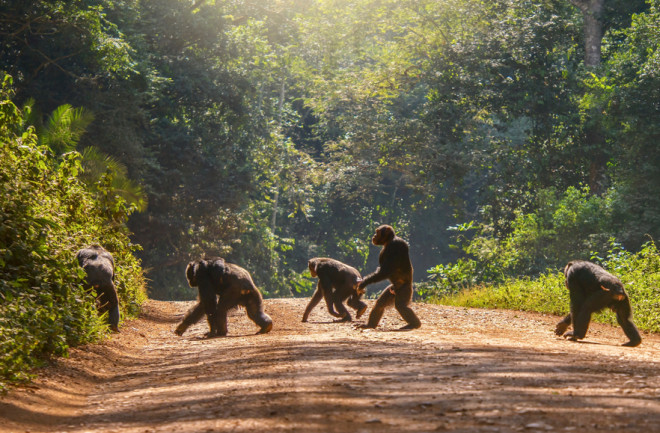To be human is to be a primate. Humans and chimpanzees, apes, tarsiers, vervets and more all share a common ancestor, and we’re clustered closely together on the tree of life.
The ancestors of Homo sapiens diverged from the ancestors of other primates at varying times, and that means we’re closely related to some primates, and more distantly related to others. There are two ways of thinking about how closely related we are to other primates: temporally and genetically.
The first merely asks how long ago we diverged from any given lineage of primates. Our ancestors split from chimpanzees, our closest relatives, along with bonobos, no more than 6 million years ago. We diverged from gorillas perhaps 10 million years ago, then orangutans around 14 million years ago. The split from gibbons is further back, and Old World Monkeys further still. So, we’re about 6 million years on from our shared history with any other living primate.
Genetically, we share more than 98 percent of our DNA with chimpanzees and bonobos. From this perspective, chimpanzees are mostly human and vice versa. But, in genetics, some changes matter more than others. That 1-plus percent of DNA that differs between our species has obviously led to some fairly significant changes.
We share about 96 percent of our DNA with gorillas, meaning that we’re, in a sense, more than twice as much like a chimpanzee as we are a gorilla. But, again, it’s not so simple when it comes to DNA. We are indeed very closely related to our ape counterparts. But the small differences between us have led to some extraordinarily big outcomes.
This story is part of an ongoing series exploring questions about human origins. Read more about ancient humans:
Just How Many Extinct Types of Human Did Our Ancestors Meet?
These Skulls From Ancient Humans Might Provide Clues About Early Mating Practices

